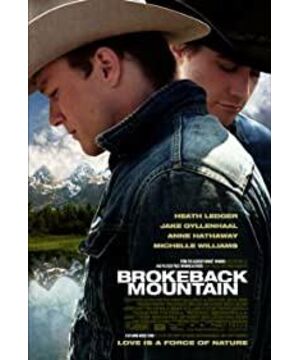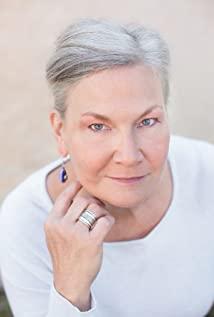It is a waste of ink to write the worldly success of "Brokeback Mountain". The Oscar for Best Director is enough to make Ang Lee the most successful Asian director ever in Hollywood. Ang Lee did what "Movie Emperor" Akira Kurosawa, who was worshipped by the Hollywood boys, did not do. Ang Lee was not even satisfied with this. On the night when the Oscars was over, at the backstage media group interview, Ang Lee bluntly stated that he was disappointed that the film did not get the best picture.
Ang Lee's external temperament has always given people an elegant and humble sense of existence. In the entire Chinese world, he is the most widely accepted director. However, the temperament of Li An's works is actually not related to the implicit, introverted, restrained, and circuitous features of the traditional Eastern style. Whether it is image aesthetics or narrative rules, Ang Lee does not possess Eastern or Chinese temperament. There is no special mystery that Ang Lee is so highly accepted by Hollywood, because what he originally received was Hollywood training. "Lust Caution" is the most classic case. In his film review collection "The Knife and the Stars", Xu Haofeng pointedly pointed out that the biggest problem of "Lust Caution" was to destroy the implicit pen and ink in the original novel, "the secret becomes naked" and "complex feelings change." It's cheap". The most vulgar thing is that Wang Jiazhi's last juncture is understood as the motivation of sex and the ring. As Xu Haofeng criticized, this is a typical Hollywood play rule, and this is why Hemingway's novels were corrupted by Hollywood movies. In fact, it is difficult to find a substantial reason for Wang Jiazhi's last backlash. Although this is the climax of the novel, there is no clear, visible and utterable motivation to deduce the result. The ambiguous, faint, and unspeakable momentary emotional outburst is what the late Zhang Ailing style strives for. Wang Jiazhi realized and recognized his emotional identity in an instant, and it was difficult for Li Ang to understand the outbreak of this instant. The extremely special emotional relationship between Wang Jiazhi and Mr. Yi, the traitor, has long been trained in the rules of Hollywood drama so that it is even more difficult for Li Ang, who has become a mind-set, to understand.
The difficulty of "Brokeback Mountain" is homosexuality. The difficulty of homosexual movies lies in the scale of emotion and the way of expression of emotion is very different from that of heterosexuality. Many well-known Chinese directors have made gay movies, but it is hard to say that there are outstanding ones. Wong Kar-wai's "Happy Together" was a great success in Cannes, and it was Wong Kar-wai's stepping stone into the top Western film festival circle. But the emotional expression of this movie in Wong Kar-wai's works is the least Wong Kar-wai. The imaginary, dreamy, and non-possessive romantic impulse in "Chongqing Forest" and the ambiguous and complicated middle-aged depression in "In the Mood for Love" disappear. The film replaced it with a straightforward love of you and me. In fact, the era symbols and identity related to 97 have enhanced the film’s appeal and attention at international film festivals.
"Brokeback Mountain" is of course an extremely tear-jerking movie. This tear-jerking feeling even transcends gender. Heterosexual audiences will be easily moved by the film’s emotional expression. There is no way for two people who love each other to be together (Ennis’s original saying is "It’s impossible for two men to live together"). For twenty years, they can only rely on meeting several times a year, and more days are suffering. In the end, Jack died unfortunately, and Ennis vowed that he would never find another person in this life and die alone. Born as an orphan, he was eventually abandoned by society as an orphan. Gay-orphans have become the most important self-referentiality in the film. Brokeback Mountain, the place of half-life love between Jack and Ennis, has become a sad, miserable, and beautiful utopian image. It is a place of alienation, and its natural attributes refer to Ennis and Jack’s two decades of homosexual love. Pretending, it is the destiny, the love of the same sex is the same as the love of the opposite sex.
The depressed heart is unforgettable and will never be unforgettable, the one who loves is you, the heart and soul, abandoning his wife and children, no regrets.
This is where the film’s tears are.
Even though most viewers do not have a sense of identity with homosexuality, they can easily arouse sympathy for oppressed love. One of the problems with the film is the sharp design of the tear gas point. This is not an afterthought of the creator's psychology. Ang Lee mentioned this in an exclusive interview with The New York Times in 2010. After the first internal screening of the film, Ang Lee’s old partner and the producer of the film, Xiamus, was not satisfied, "Too long, three tears, two pee, I want four tears, one Urine points." In fact, the tears in the film are indeed very conspicuous. After Ennis and Jack broke up for the first time at Brokeback Mountain, Ennis passed the corner and suddenly wept. This is the first tear point. Jack said the golden sentence "I wish I could quit you" to Brokeback Mountain, which was the second point of tears. At the end, Ennis puts the shirt that symbolizes the moment of love between the two into the cabinet, which is the third tear point. The design intent of the tear point that is too clear and too resonant, no matter whether it hits or not, it is not a clever creative rule.
Even if you don't agree with the nitpicking problem of being clever and not clever in design, some details in the plot design of the film are still open to question. Ennis and Jack broke up for the first time in Brokeback Mountain. Four years later, they met and hugged and kissed. They happened to be met by Ennis's wife Emma. This design is the level of TV soap opera. If you insist on the implicit restraint that Oriental aesthetics say can't be broken, Ozu and Hou Xiaoxian will definitely not handle this kind of drama in this way. Taking a step back, the major turning point is accomplished by chance. According to Hollywood screenwriting rules, it is also waiting. What's more questionable is that with Ennis's cautious, introverted character and the principle of not daring to defy the secular laws, thinking about his wife's feelings and meeting Jack unscrupulously is a bit inconsistent with the character's personality.
In fact, even in terms of the tear-gas effect, the overall image design of the two female characters is unstable. Emma and Lulin have a weak sense of existence, their images are thin, and even have an untrue and false taste. The image of Emma as a victim weakens Ennis's tragic strength to a certain extent. Ennis can not love her, but it does not mean that she can be without attachment. This is ignoring the complex side of human nature. Emma's husband in the supermarket who married later is a blank sheet of paper. It's like a character from a third-rate TV series. Lulin's emotional handling of Jack is also very simple, even a little unexplainable. Ennis and Jack can easily abandon the other half of the real family because of the strong feelings between them. This method of treatment is just for strengthening and strengthening. If the family relationship between the two is more complicated, it will actually appear to be more emotionally complex.
Looking at it further, the overall plot design of the film is to reinforce the unsatisfactory life of Ennis and Jack after their marriage. Even to show this point, the editing point of turkey was used to edit the scene of Jack and his family eating turkey and Ennis and his family eating turkey together. One is to show that Jack is not tolerant of his father-in-law, in the eyes of the father-in-law's family, it is just a tool for procreation. The other scene is even more weird. Emma has divorced from Ennis, but is able to dine with her children with her current husband and ex-husband. And Emma suddenly broke out, facing Ennis out of her sexual pain, causing unhappy results. The plot is quite reluctant. Why did Emma, who has a forbearing character, suddenly broke out? It seems very reluctant on the logical level. The two-part combination is just to strengthen the hardships of Jack and Ennis's respective families.
If the intentional design is not to mention the tears, the homosexual relationship between Ennis and Jack in the film does not show how extraordinary in the subject of homosexuality, but has some very intriguing ways to deal with it. Ang Lee seems to be deliberately strengthening the universality of homosexuality, but at the same time he leaves some doubts.
The intent of the image design of Jack and Ennis is very clear, emphasizing the difference of a kind of duality. Ennis is rough, introverted, simple, and cautious (the habitual gesture of pursing the mouth especially reinforces this). Jack is delicate, outgoing, feminine, and full of free and unrestrained pursuit of emotions. The film even reinforces this from the clothing colors. Ennis is always light clothing, and Jack is always deep clothing. Ennis is conservative and has a clear mentality of keeping virginity. Jack is open, not seeking uniqueness, but seeking the deepest love. The initial sexual process of the two has a kind of meaning of Adam and Eve stealing the forbidden fruit, in order to emphasize the legitimacy and divinity of same-sex love. In short, one yin and one yang, rigidity and softness one after another, can't help but be in a trance: Is this homosexual or heterosexual? What is particularly strange is that a movie that seeks justice for homosexuals and fights for equal rights is very conservative in the performance of the male body. The film's presentation of the male body is somewhat chaste, which is very different from the male body in the images of famous gay directors such as Visconti, Fassbender, Gus Van Sant. It's not that the heterosexual director can't shoot the male body well. The male body in Claire Deney's "Forbidden Love in the Army" has become a totem symbol of male spiritual desire. The extraordinary spiritual pursuit in the film is gradually revealed through the movement of the male body in the space. This is a very advanced performance technique. "Brokeback Mountain" on the one hand is afraid of showing the male body, on the other hand it shows the female body in an unnecessarily exploitative manner. The two female protagonists Michelle Williams and Anne Hathaway both performed naked in the film. Hathaway’s nudity was actually unnecessary. She later made it clear in an interview that the nudity made her feel humiliated. A gay movie is afraid of showing the male body, but it takes care of the lust needs of heterosexual male audiences, and shows the naked body of women. What kind of mental state is this? To put it bluntly, the male body images in Brokeback Mountain are actually the projections of a typical homophobic creator.
The best literary works can touch the unexpected but extremely real aspect of human nature. The so-called human nature originally has this layer, such as the high-level love in which good and evil are reversed in "Lust Caution" summarized by Xu Haofeng. Because homosexuality is suppressed, there is a special sense of proportion. The treatment of proportion can show the creator's sharp, sensitive, and understanding vision and mind. Bai Xianyong's "The Tree Is Still Like This" is the best gay narrative in the Chinese world. He does not tragic, sublime, sympathize, and admire this repressed emotion that cannot be contained in the mainstream society. Instead, he narrates the emotions in a calm tone. What flows out is the most precious and calm life energy. , Emotional energy. "Brokeback Mountain" is just an axe-style tear-jerking image, seeking the cheap resonance of the masses, and at the same time, it is a politically correct and equal justice, far from being a classic masterpiece of gay movies.
(The first column of iris evil theory, this edition is a revised edition)
View more about Brokeback Mountain reviews











